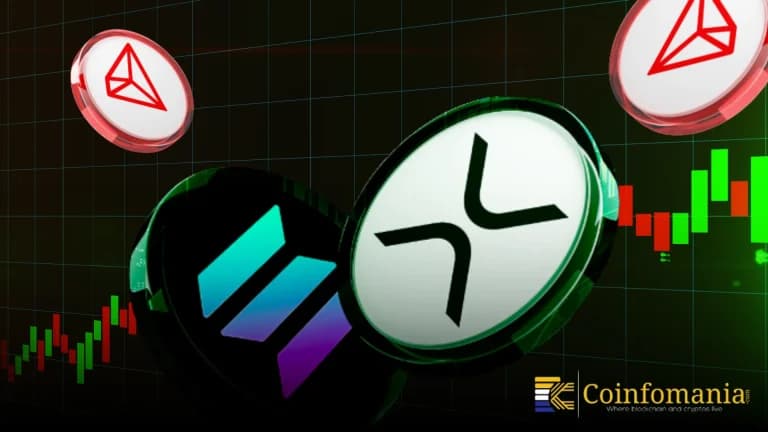Sumit Gupta Backs BJP Leader’s Crypto Push, Urges Bitcoin Strategic Reserve
CoinDCX CEO, Sumit Gupta, supports BJP leader Pradeep Bhandari’s call to treat Bitcoin as a strategic reserve, urging India to act now.

Quick Take
Summary is AI generated, newsroom reviewed.
Sumit Gupta praised BJP's Pradeep Bhandari for promoting Bitcoin as a strategic reserve.
He highlighted the US's $20 billion Bitcoin reserve as a global shift in policy.
Gupta urged India to act fast and lead the Web3 revolution.
The idea of Bitcoin as a strategic reserve is gaining mainstream traction in India. On June 26, CoinDCX CEO Sumit Gupta posted on X, applauding BJP leader and spokesperson Pradeep Bhandari for advocating crypto in the national spotlight. Gupta praised Bhandari’s India Today article, highlighting the US’s over 200,000 BTC reserve. This shows that Bitcoin is not just an asset but an upcoming currency. The U.S. Strategic Bitcoin Reserve was launched in January 2025 by President Donald Trump, now valued at over $20 billion. Gupta urged India to act fast. He emphasized, “We missed Web 1.0 and 2.0. Let’s lead in Web3.”
Bitcoin as a Strategic Reserve: Global Trends and Lessons for India
The US example has pushed the strategic role of Bitcoin into a global policy dialogue. Its Strategic Bitcoin Reserve, launched this year, has transformed over 200,000 seized Bitcoins into a national economic buffer. As of June 2025, its value crossed $20 billion. It works as a hedge against inflation and is positioned to grow further. Recent plans from the White House include buying more Bitcoin using budget-neutral strategies. Three US states have also passed laws to let public funds purchase and hold Bitcoin.
This signals a shift. Nations now see Bitcoin not just as an investment but as a part of their economic defense strategy. India stands at a critical juncture. Policymakers and citizens are asking whether Bitcoin can offer fiscal stability in volatile markets. Could it serve as a digital complement to gold in national reserves? Pradeep Bhandari’s article argues yes. And with leaders like Sumit Gupta echoing that thought, the case grows stronger.
Bhutan’s Bitcoin Strategy: A Regional Blueprint for Digital Reserves
Bhutan has quietly created its own digital playbook. Since 2021, the Himalayan nation has mined Bitcoin using clean hydropower. As of May 2025, it had built a Bitcoin reserve worth over $1 billion. The effort started as a response to falling tourism and economic pressure. Today, it funds public services and supports Bhutan’s sustainability goals. India has a larger renewable energy base. With the right regulations and scaling, India could explore a similar path. The difference in size and policy readiness will pose unique hurdles. But Bhutan proves that small nations can use digital assets strategically. It offers a regional success story that deserves close attention in Delhi.
Why Bitcoin Qualifies as a Digital Strategic Reserve Asset
Bitcoin’s appeal lies in its core features. It has no central issuer, much like gold. Only 21 million Bitcoins will ever exist. This fixed supply makes it immune to inflation caused by overprinting of fiat money. Its liquidity is unmatched. Unlike gold locked in vaults, Bitcoin trades around the clock on global exchanges. Every transaction is also traceable through a public blockchain. This level of transparency is rare in traditional finance.
In 2025, the US SEC recognized Bitcoin as a commodity, not a security. The IMF now classifies it as a capital asset. These recognitions boost its legitimacy. It offers governments a decentralized and transparent hedge. For India, this raises a policy debate on Bitcoin joining our list of strategic reserves alongside gold and foreign currency.
Strategic Reserve Thinking Must Guide India’s Crypto Policy
Sumit Gupta’s message is more than just a tweet. It reflects years of advocacy from India’s crypto ecosystem. The support from the BJP’s Pradeep Bhandari gives that voice new weight. Their call is clear: India must explore Bitcoin’s potential as a strategic reserve. With the US and Bhutan leading by example, India cannot afford to wait. The G20 talks, chaired by India in 2023, gave us a head start. But other countries are already running. India needs regulation, not delay. Clear rules could unlock responsible innovation. With the right vision, India could move from lagging behind to leading the global Web3 wave.
Follow us on Google News
Get the latest crypto insights and updates.
Related Posts

Bed Bath & Beyond Enters Blockchain Finance With Tokens.com Acquisition
Vandit Grover
Author

Whale Machi Big Brother Loses $26M on High-Leverage Positions
Shweta Chakrawarty
Author

Moscow Exchange Sets the Stage for Crypto Indices Expansion in 2026
Vandit Grover
Author